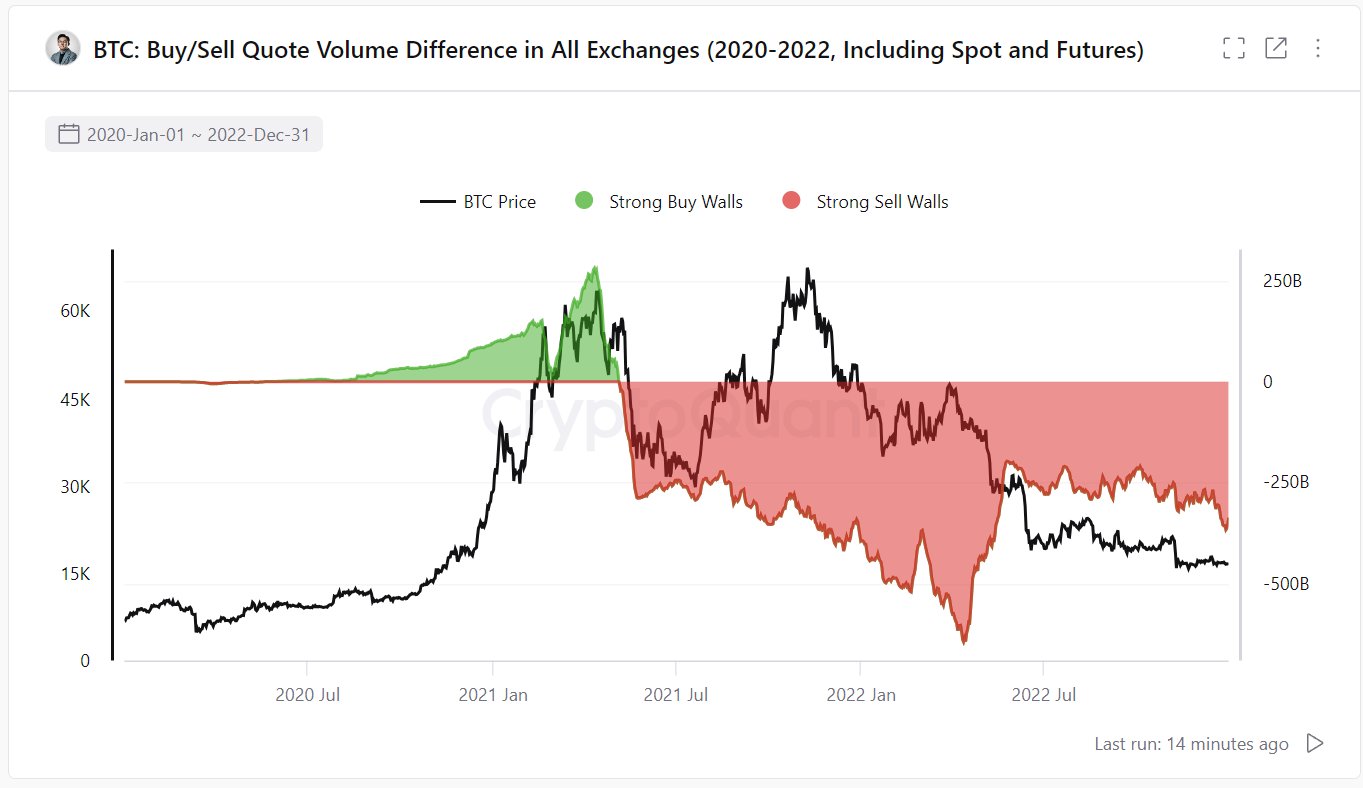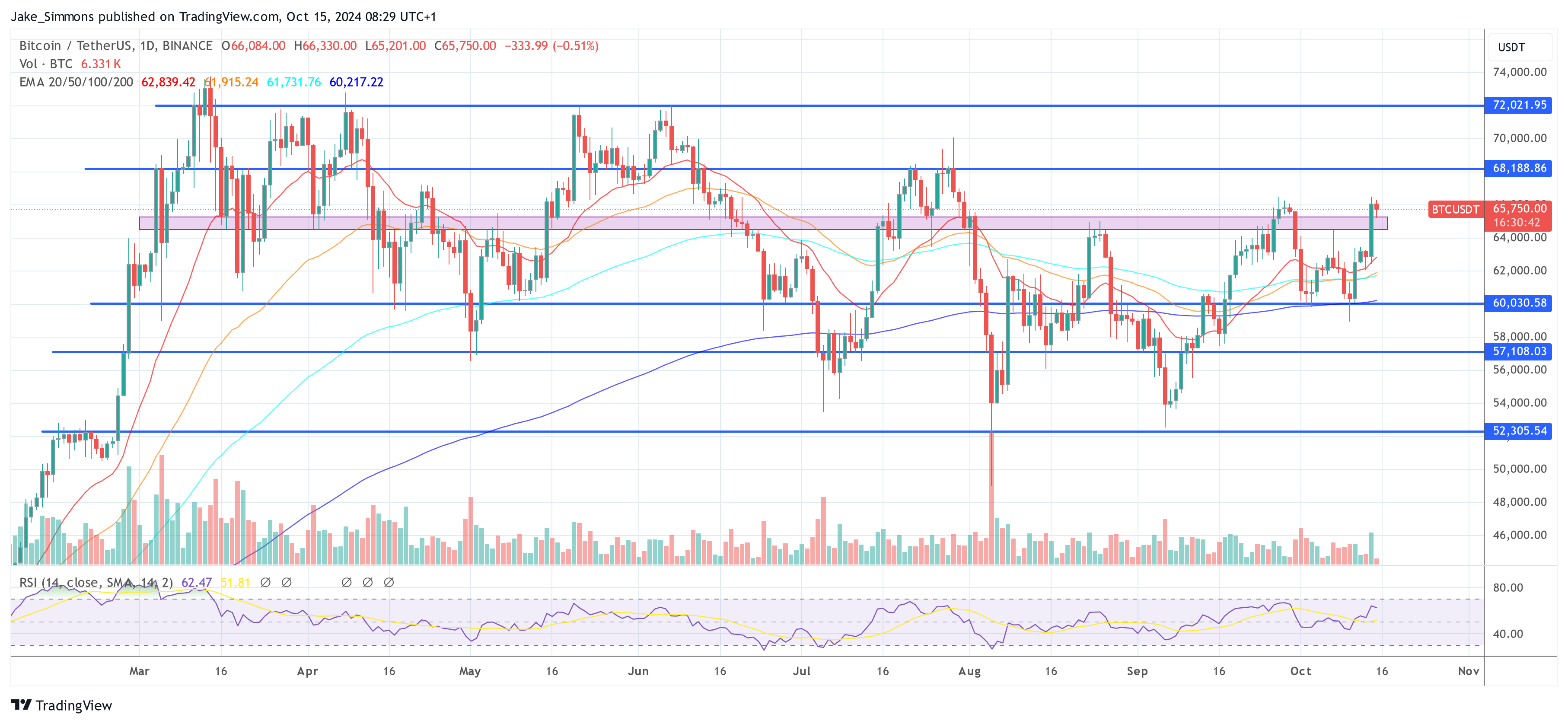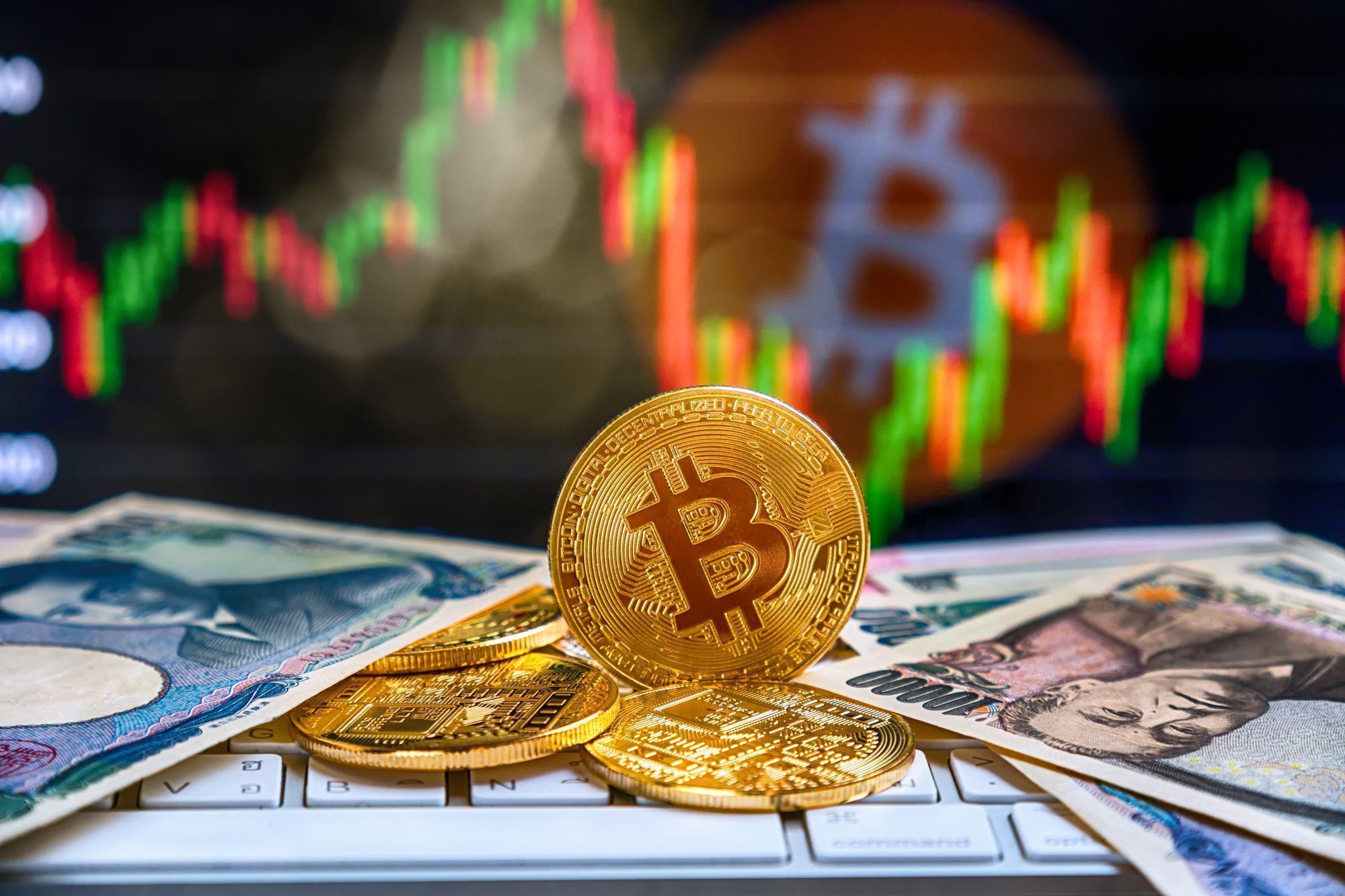Why Bitcoin Price Blasted Past $66,500: Key Reasons Revealed

Bitcoin experienced a significant surge, climbing from a low of $62,050 on Sunday to a peak of $66,500 late Monday. As of Tuesday, the BTC price is slightly correcting below this key resistance level, but hovering above $65,000. Several critical factors have contributed to the rally, including a short squeeze coinciding with the upcoming US elections, strong demand in the spot Bitcoin market, and substantial inflows into US spot Bitcoin Exchange Traded Funds (ETFs).
#1 Short Squeeze And US Election Influence
Yesterday’s price surge can be partly attributed to the liquidation of leveraged short positions. Singapore-based trading firm QCP Capital writes in their latest investor note that nearly $80 million worth of Bitcoin and Ethereum leveraged shorts were liquidated, applying upward pressure on the market. While some speculate that the postponement of Mt. Gox’s repayment deadline to October 2025 played a role, this news was already published on Friday, suggesting other factors were at play during Monday’s rally.
“Although there could be many factors that could explain today’s move, it is quite an interesting time if we look at historical price action. We are in the middle of October and just three weeks away from the US elections,” QCP Capital notes. In both 2016 and 2020, Bitcoin remained in a tight trading range for months before initiating a significant rally approximately three weeks before the US Election Day. In 2016, Bitcoin doubled in price from $600 by the first week of January following the election. Similarly, in 2020, it surged from $11,000 to a high of $42,000 by January.
This year, October—often referred to as “Uptober” due to its historically strong performance—has been underwhelming, with Bitcoin up just 1.2% compared to an average of 21%. The current rally, occurring three weeks before the US elections, suggests that history might be repeating itself, potentially leading to further price appreciation as investor optimism builds.
#2 Strong Demand For Bitcoin
For the first time since mid-2023, Bitcoin’s buy orders are matching sell orders in spot market order books across exchanges. Ki Young Ju, Founder and CEO of CryptoQuant, highlighted this development via X: “Bitcoin buy walls on all exchanges are now strong enough to neutralize sell walls.”

This shift marks a significant change from the trend observed since May 2021. “Data from the last cycle (2020-2022). It’s the accumulated difference between quoted buy and sell volumes. Since May 2021, sell walls had been consistently thicker than buy walls until the end of the cycle,” Young Ju shared.
 #3 Surge In Spot Bitcoin ETF Inflows
#3 Surge In Spot Bitcoin ETF Inflows
Monday witnessed one of the highest Bitcoin ETF inflows on record, totaling $555.9 million—the largest net inflow day since June 3. This substantial capital influx was spread among several major asset managers. BlackRock received $79.5 million, Fidelity attracted $239.3 million, Bitwise accumulated $100.2 million, Ark Invest saw inflows of $69.8 million and the Grayscale Bitcoin Trust (GBTC) experienced inflows of $37.8 million.
Nate Geraci, President of The ETF Store and host of the ETF Prime podcast, commented on these inflows via X: “Monster day for spot btc ETFs… $550mil inflows. Now approaching *$20bil* net inflows in 10mos. Simply ridiculous & blows away every pre-launch demand estimate. This is NOT “degen retail” $$ IMO. It’s advisors & institutional investors continuing to slowly adopt.”
At press time, BTC traded at $65,750.









